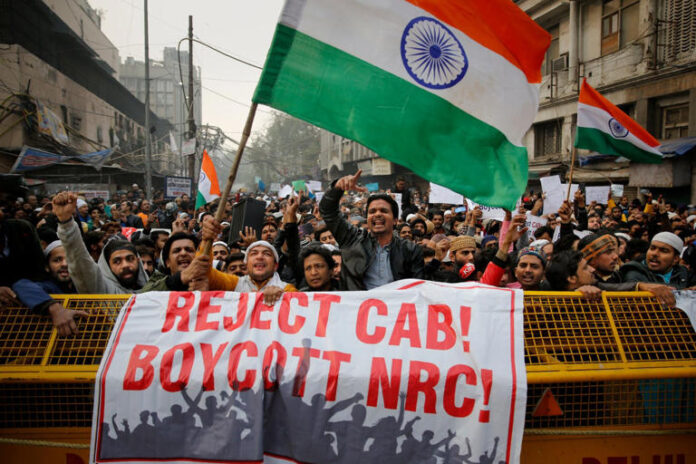NEW DELHI,India – The government of Indian Prime Minister Narendra Modi has begun enforcing the controversial Citizenship Amendment Act (CAA), a law that has drawn criticism for its perceived discrimination against Muslims. The enforcement comes four years after the law was passed in parliament and just weeks ahead of the 2024 general elections, where Modi is vying for an unprecedented third consecutive term.
The CAA, touted by the Hindu-nationalist government as “pro-refugee”, extends the opportunity for refugees from Pakistan, Bangladesh, and Afghanistan who arrived in India before December 31, 2014, to apply for Indian citizenship. However, this provision applies only to minority religious groups in these Muslim-majority countries.
The Home Ministry’s announcement of the law’s enforcement sparked renewed protests in Assam, a northeastern state, and the capital city of Delhi. Critics argue that the law is anti-Muslim. When the law was initially passed in 2019, it incited widespread protests and sit-in demonstrations across India, leading to multiple deaths and arrests. The government cited the need for time to finalize the rules and the Covid-19 pandemic as reasons for the delay in its implementation.
Opponents of the law argue that it contravenes India’s secular constitution. They express concern that the CAA, in conjunction with a proposed nationwide register of citizens (NRC), could result in discrimination against India’s 200 million Muslims, particularly those in border states.
Since the BJP assumed power in 2014, there have been numerous reports of a surge in hate crimes against Muslims. Critics claim that Modi has done little to condemn these incidents. The Indian Union Muslim League (IUML), a party based in Kerala, has petitioned the Supreme Court to halt the law’s implementation, arguing that linking citizenship to religion is “prima facie unconstitutional”.
The BJP had pledged to implement the CAA in its manifesto for the 2019 general elections. A spokesperson for the Prime Minister’s Office stated that the law would “pave the way for the persecuted to find citizenship in India”. The Home Ministry added that the law would eliminate legal obstacles to citizenship for refugees, offering a “dignified life” to those who have endured hardship for years






